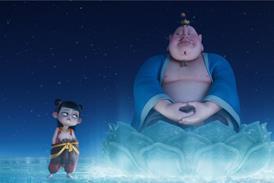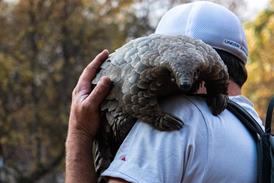London-based Film and Music Entertainment (F&ME) is a business on the move. It doesn't have a great deal of choice in one respect - the company's Tottenham Court Road offices are to be demolished to make way for a new rail network.
But Mike Downey and Sam Taylor's eight-year-old outfit has been all about seizing opportunities sometimes against the prevailing conditions. The office change, for example, has allowed them to move into new headquarters in London with production facilities house Molinare, which should add new dimensions to the F&ME business.
The company is already among the UK's most active producers and a successful proponent of co-productions - an area where the UK has been struggling.
In 2008, the company completed five features, including UK director Dominic Murphy's White Lightnin'. The tough story of Appalachian dancer Jesco White played Sundance and was an early pick for the Berlinale Panorama section. The project - high on ambition but low on cost - neatly fits the company's vision to build a "sustainable business with an eclectic and mixed portfolio".
The portfolio is already developing nicely. Murphy is working with Downey and Taylor on a slate of projects to be produced by the company's revived Mass Productions label. The partnership begins with a film with the working title Jesus Christ Airlines written by African journalist Kit Peel. The story is about the famous airlift in secessionist Biafra during the devastating Nigerian civil war in the 1960s.
"Keeping relationships with major new talents like Murphy is a big part of where we want to be," says Downey.
Another film-maker with whom a strong relationship has been established is Ed Blum (Scenes Of A Sexual Nature), who is working up two upcoming $15m projects - art heist film FAKE! and The Laughter Clinic, to be produced with Blum's own Tin Pan films.
There can be little challenge to the claim to eclecticism - F&ME's current slate also includes Nick Stringer's nature doc Turtle: The Incredible Journey, Goran Rusinovic's Sarajevo prizewinner Buick Riviera and Julius Kemp's Icelandic horror film Reykjavik Whale Watching Massacre.
In the current market environment, it is the sustainability that will be the real challenge but Downey and Taylor are convinced of their model. F&ME have no intentions to batten down the hatches and rely on the back catalogue. White Lightnin' and Turtle were both in-house projects, promising to bring returns directly to the business.
The international co-productions, including Reykjavik and Buick Riviera will continue because they offer an underexploited source of funding for a UK industry that too often tends towards the insular.
Downey admits the work is not "unproblematic" and it requires a different way of working. "The co-prod business is all about fees, talent pool, reciprocation, curiosity and a tendency to the cosmopolitain rather than the Anglocentric," he says.
But learning to work with overseas finance offers an alternative when other sources of finance are so limited. "Too many producers just look at the obvious sources of finance in the UK but there are other countries with good deals," says Downey.
Creating a business in the current climate requires a more cosmopolitan attitude, he argues, and an ambition to reach out beyond borders. "It's all about passion - and that has resulted in a sustainable company that has made 30-odd films in the last eight years with budgets totaling more than £70m which have won over 50 prizes."



















No comments yet